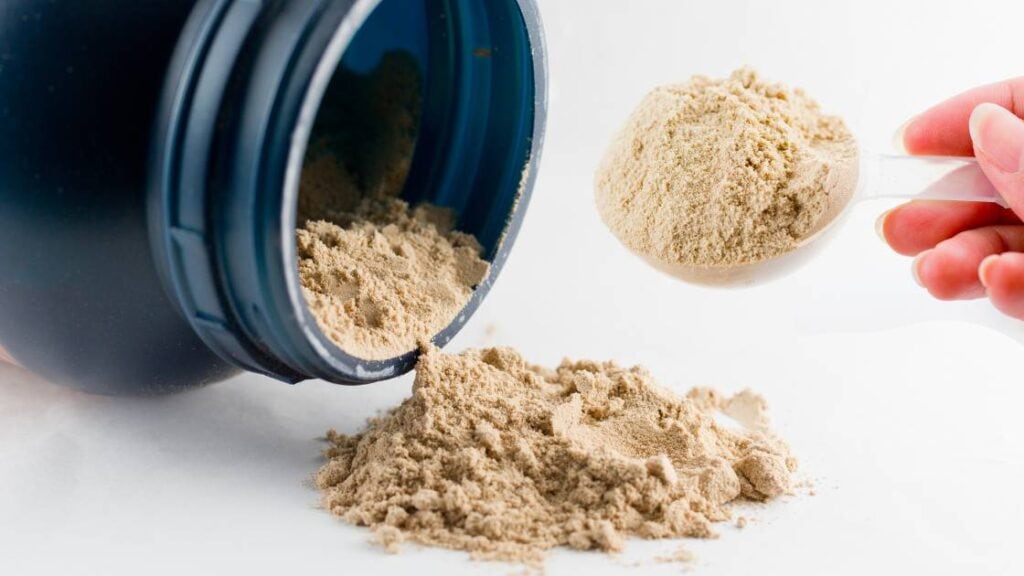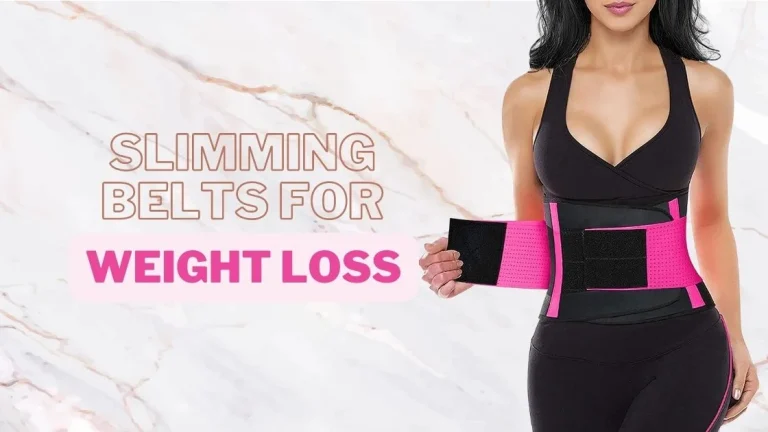- They can help improve sports performance and compensate for deficits caused by intense exercise
- They can provide energy through sources like vitamins, amino acids, and caffeine
- They aid in post-workout recovery and muscle growth
- They can help keep you satisfied and prevent overeating during weight loss
- It’s important to verify the safety and quality of sports supplements and consult a doctor before taking them
Many people love sports or practice any physical activity that helps them not only improve their physical condition but also relieve the stress of everyday life.
But some people go a little further and put in more effort for better aesthetic results.
It is there when they look for support in sports supplements.
But are they safe to take?
Continue reading and discover the pros and cons of sports supplements.
The benefits of sports supplements
Nutritional aids that come in the form of sports supplements can help sports performance, enhance the improving effects on the body of people who train, and help compensate for deficits caused by intense effort after a day of training.

Each person has different nutritional requirements, and this will depend to a large extent on the type of exercise or sport that they practice and also on the results that they intend to achieve.
In this sense, it is important to seek the help of a nutritionist or doctor specialized in the area who can guide each athlete in which supplement is best to achieve their goals and which should be avoided.
In addition, it is essential to take the sports supplements in an organized way, following the guidelines established by the specialist to enjoy all the benefits and begin to see the short and medium-term results.
Taking supplements without planning will waste your time and money, and you may not get any benefits.
The Pros of Sports Supplements:
Offer You Energy
Many times while we are training, we need a boost and help to complete our training routine.
Sports supplements that include sources of vitamins, amino acids, and caffeine can give us that extra we need to be full of energy.
Numerous studies show that caffeine is an energy booster that can be used with confidence to improve the workout and raise energy levels.
That is why many sports supplements include it in their ingredients.
Vitamin B is essential to avoid fatigue generated by training; a good dose of vitamin B in sports supplements will prevent you from getting tired easily.
Carbohydrate sources are also allies when it comes to providing energy.
They are part of the fuel that our muscles need to complete each routine.
A good sports supplement should include these ingredients so that you stay active and energetic throughout your training.
Help Your Body recover it
Post-workout recovery is vital for your muscles to develop and for your joints, bones, and body, in general, to adapt well to training and prepare for the next routine.
Muscles in the body are made up of fibers, and during training, those fibers loosen and tear as part of the process of building muscle mass.
To help the recovery of muscle fibers and build muscle, sports supplements play an essential role.

Protein-based supplements are the allies in muscle recovery and the construction of muscle mass.
It is often difficult to consume all the protein that the muscles need to grow.
In that sense, protein-based supplements help you complete the required amount quickly and efficiently.
Keep You Satisfied But Not Overfull
For people who want to lose weight, staying full for most of the day is a difficult matter.
You exercise, but it makes you hungrier, and you can’t help but feel like eating.
To avoid this, there are food supplements created specifically to avoid feeling that desperation for food.
Protein shakes are allies to keep you sufficiently satisfied.
They help you avoid running around looking for food and ruining all your progress on your weight loss goal.
The Cons of Sports Supplements:
Verification of use
Most health supplements have the approval of competent laws.
However, it is important to pay attention to health labels and permits.
Consuming a sports supplement not validated by the corresponding laws and regulations is a product that can become potentially dangerous to health.
If a supplement is not verified, it may contain chemicals that are banned or in doses that are unsafe for you to consume.
In this sense, reading the health permits well before buying a supplement should be mandatory.
Some supplements have a lot of Protein
Protein powder is good for athletes but in fair measure.
Each organism has a different nutritional requirement according to its goals.
In that sense, the supplements must be easy to dose to adapt to the needs of each person.
However, some supplements contain too much protein.

Consuming more protein than is needed, the body can present unwanted symptoms such as constipation, diarrhea, gas, and upset stomach in general.
So pay attention once again to sports nutrition supplement labels.
Take a good look at the amount of protein they bring and how you can dose it according to your requirements.
Why is it important to know the pros and cons of sports supplements?
All organisms are different and do not need the same supplements or amounts.
Taking workout supplements without your doctor’s consent can lead you to consume them incorrectly, adversely affecting your health.
Some people have food and drug allergies.
If you are allergic to any food or medication, you may have a reaction when consuming sports supplements.
These have a variety of ingredients and may contain some that you are allergic to.
If you notice any different reaction in your body after consuming any sports supplement, stop its use immediately and see your doctor.
Is it safe to take Nutrition Supplements?
Dietary supplements are completely safe for people who are healthy and do not have any disease.
In the same way, before buying and consuming any of them, it is convenient that you pay attention to the following elements:
- Certify that it complies with quality standards and sanitary permits.
- Buy reputable brands in the industry.
- Read the ingredients very well and consume the supplement according to the manufacturer’s recommendations.
- Always consult your Doctor first; he will know which is the best supplement for you.
What supplements does your body need?
The ideal would be not to take any nutritional supplement.
Consuming vitamins and nutrients directly from foods, fruits, and vegetables is best.
However, consuming all the vitamins our body needs is often difficult, only with daily food.

In that sense, a sports supplement can be a fabulous option to complement our diet.
The best way to know the best supplement each person needs is by doing a medical evaluation to find out what deficiencies our body has.
The most popular dietary supplements to improve endurance and general well-being that athletes need:
Proteins, energy gels, and supplements are common sports nutrition products that were previously used only by bodybuilders and athletes.
Now are widely used by the general public.
Sports nutrition is a rapidly expanding market.
You may have questioned the value of sports nutrition supplements if you’re a serious athlete.
Maybe you are trying to get a competitive edge or a non-athlete hoping to get more out of your exercise routine.
Supplements for sports nutrition might take the shape of powders, pills, beverages, or snack bars.
They’re all designed to improve athletic performance in some way.
Usually, by promotes muscle growth, boosts energy, enhances endurance, or helps with weight loss.
Certain sports supplements, especially protein, creatine, and caffeine supplements, are well-known and have a good track record of usefulness.
Yet, not all sports pills may live up to their labeled promises.
Read the labels carefully, never exceed the dosage, and preferably follow the recommendations of a nutritionist or dietitian.
The most popular dietary supplements for athletes are:
- Creatine
- Vegan Proteins
- Proteins (Whey protein)
- BCAA/Leucine
- Omega 3
- Multivitamins
- Glucosamine
- Caffeine
- Green Tea
- Nitric Oxide
- Glutamine
- Casein
- Pea protein
- Hemp plant-based supplements
It is essential to know that the majority of athletes and non-athletes should review their diets and eating patterns.
This is before starting to take nutritional supplements.
The best way to receive protein, carbs, good fats, vitamins, and minerals is from dietary sources.
This is according to the International Society of Sports Nutrition.
Also, people can frequently improve their athletic performance by making little changes.
Altering the time of the meals to coincide with the timing of the exercise activity will be a good start.
More facts about Sports Supplements:
- Creatine monohydrate is involved in the process of generating energy for the muscles. That is why creatine supplement is one of the star supplements for athletes.
- Whey protein includes separated proteins, and consuming it helps to increase muscle. Eating it as supplementation makes it easier to get all the protein an athlete needs.
- Taking many supplements is not enough to get endurance in any training. Eating well, drinking enough water, and sleeping at least 7-8 days are necessary for our endurance.
- Leucine is one of the essential amino acids. This is essential in our body to synthesize proteins and help athletic performance.
- Supplements made with electrolytes help a lot in people’s performance and in popular sports activities.
- Supplements may help people get the nutrients they need. However, a dietitian always recommends a complete and balanced diet instead of supplementation.
- To increase muscle mass, consuming glutamine as a pre-workout will aid muscle growth. Accompanying glutamine with protein supplementation is an excellent combination.
Should I know something more about sports supplements?
There are no magic sports supplements. Supplements, like any other medicine, should be taken with caution.
Many people buy and consume supplements irresponsibly, and this can lead to adverse health problems.
Always consult your doctor first, and do not make decisions without first seeking expert approval.









